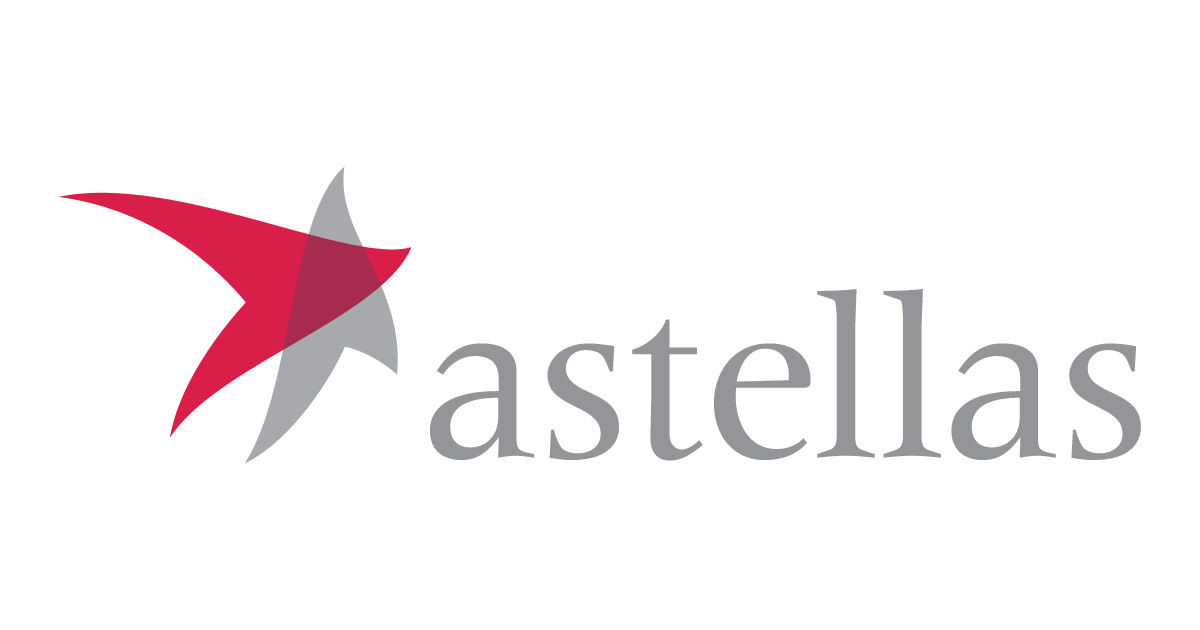预约演示
更新于:2024-09-22
IL-23R
更新于:2024-09-22
基本信息
相关靶点 |
关联
4
项与 IL-23R 相关的药物靶点 |
作用机制 IL-23R抑制剂 |
在研机构 |
非在研适应症- |
最高研发阶段临床3期 |
首次获批国家/地区- |
首次获批日期- |
靶点 |
作用机制 IL-23R抑制剂 |
在研适应症 |
非在研适应症- |
最高研发阶段临床前 |
首次获批国家/地区- |
首次获批日期- |
31
项与 IL-23R 相关的临床试验CTIS2023-510161-97-00
- 77242113PSO1007
开始日期2024-06-19 |
申办/合作机构- |
CTIS2024-512220-11-00
- 77242113PSO1008
开始日期2024-05-23 |
申办/合作机构- |
CTIS2023-507039-39-00
A Phase 3 Multicenter, Randomized, Double-blind, Placebo-controlled and Deucravacitinib Active Comparator-controlled Study to Evaluate the Efficacy and Safety of JNJ-77242113 for the Treatment of Participants With Moderate to Severe Plaque Psoriasis - 77242113PSO3004
开始日期2024-03-25 |
100 项与 IL-23R 相关的临床结果
登录后查看更多信息
100 项与 IL-23R 相关的转化医学
登录后查看更多信息
0 项与 IL-23R 相关的专利(医药)
登录后查看更多信息
1,445
项与 IL-23R 相关的文献(医药)2024-11-01·CYTOKINE
Case-control study of IL23R rs76418789 polymorphism, smoking, and ulcerative colitis in Japan
Article
作者: Kato, Hiromasa ; Takeshita, Eiji ; Imaeda, Hirotsugu ; Yoshimura, Naoki ; Suzuki, Seiyuu ; Ohashi, Katsuhisa ; Kawasaki, Keitarou ; Kumagi, Teru ; Ikeda, Yoshio ; Hiraoka, Sakiko ; Hato, Naohito ; Yokoyama, Tetsuji ; Nagata, Chisato ; Miyake, Yoshihiro ; Mori, Kenichiro ; Higashiyama, Masaaki ; Miyake, Teruki ; Furukawa, Shinya ; Ninomiya, Tomoyuki ; Mizukami, Yuji ; Hokari, Ryota ; Hiasa, Yoichi ; Nunoi, Hiroaki ; Kakimoto, Kazuki ; Okada, Hiroyuki ; Tanaka, Keiko ; Yamamoto, Yasunori ; Saito, Mitsuru ; Andoh, Akira ; Miura, Hiromasa ; Sayama, Koji ; Higuchi, Kazuhide
BACKGROUND:
Interleukin (IL)-23 is involved in the pathogenesis of ulcerative colitis (UC). A genome-wide significant association between IL23R p.G149R (rs76418789) and UC was previously identified in Japan and Korea. This case-control study aims to examine this association within the Japanese population.
METHODS:
The study included 384 cases diagnosed with UC within the past 4 years and 661 control subjects. Adjustment was made for sex, age, and smoking.
RESULTS:
The frequency of the AA genotype of rs76418789 was 0.0 % in cases and 0.5 % in control subjects. In comparison to study subjects with the GG genotype of rs76418789, those with the GA or AA genotype had a significantly reduced risk of UC, with an adjusted odds ratio of 0.67 (95 % confidence interval: 0.44-0.999). A significant multiplicative interaction was observed between rs76418789 and having ever smoked influencing UC (p for interaction = 0.03). A significant positive association was found between having ever smoked and UC in individuals with at least one A allele, while no such positive relationship was observed in those with the GG genotype.
CONCLUSION:
IL23R SNP rs76418789 showed a significant association with UC. This study provides new evidence regarding the interaction between rs76418789 and smoking in relation to UC.
2024-10-01·Brain, behavior, & immunity - health
Autism likelihood in infants born to mothers with asthma is associated with blood inflammatory gene biomarkers in pregnancy
Article
作者: Robijn, Annelies L ; Whalen, Olivia M. ; Robijn, Annelies L. ; Karayanidis, Frini ; Woolard, Alix ; Whalen, Olivia M ; Baines, Katherine J. ; Collison, Adam M ; Williams, Evan J. ; Collison, Adam M. ; Lane, Alison E. ; Baines, Katherine J ; Williams, Evan J ; Murphy, Vanessa E ; Mallise, Carly A. ; Murphy, Vanessa E. ; Campbell, Linda E ; Lane, Alison E ; Mattes, Joerg ; Gibson, Peter G. ; Mallise, Carly A ; Campbell, Linda E. ; Gibson, Peter G
Mothers with asthma or atopy have a higher likelihood of having autistic children, with maternal immune activation in pregnancy implicated as a mechanism. This study aimed to determine, in a prospective cohort of mothers with asthma and their infants, whether inflammatory gene expression in pregnancy is associated with likelihood of future autism. Mothers with asthma were recruited to the Breathing for Life Trial. RNA was extracted from blood samples collected at mid-pregnancy. 300 ng total RNA was hybridized with the nCounter Human Inflammation gene expression panel (Nanostring Technologies, 249 inflammation-related genes). Parents completed the First Year Inventory (FYI) at 12-month follow-up, which assessed an infant's likelihood for autism across 2 behavioural domains: social communication and sensory regulation. A total score ≥19.2 indicated increased likelihood for future autism. Inflammatory gene expression was profiled from 24 mothers: four infants scored in the high autism likelihood range; 20 scored in the low autism likelihood range. Six inflammatory genes were differentially expressed and significantly up-regulated in the high autism likelihood group: CYSLTR2, NOX1, C1QA, CXCL10, C8A, IL23R. mRNA count significantly correlated with social communication FYI score for CYSLTR2 (Pearson r = 0.46, p = 0.024) and CXCL10 (r = 0.43, p = 0.036) and with sensory regulation score for ALOX5 (r = -0.43, p = 0.038) and MAFK (r = -0.46, p = 0.022). In this proof-of-concept study, inflammatory gene expression during pregnancy in mothers with asthma was associated with an infant's likelihood of future autism as well as scores relating to social communication and sensory regulation.
2024-09-16·MYCOPATHOLOGIA
Malassezia globosa Induces Differentiation of Pathogenic Th17 Cells by Inducing IL-23 Secretion by Keratinocytes.
Article
作者: Deng, Yuxuan ; Jia, Qiuyu ; Wang, Xiaojie ; Li, Houmin ; Hu, Jian ; Zhang, Jianzhong
Malassezia, the most abundant fungal commensal on the mammalian skin, has been linked to several inflammatory skin diseases such as atopic dermatitis, seborrheic dermatitis and psoriasis. This study reveals that epicutaneous application with Malassezia globosa (M. globosa) triggers skin inflammation in mice. RNA-sequencing of the resulting mouse lesions indicates activation of Interleukin-17 (IL-17) signaling and T helper 17 (Th17) cells differentiation pathways by M. globosa. Furthermore, our findings demonstrate a significant upregulation of IL-23, IL-23R, IL-17A, and IL-22 expressions, along with an increase in the proportion of Th17 and pathogenic Th17 cells in mouse skin exposed to M. globosa. In vitro experiments illustrate that M. globosa prompts human primary keratinocytes to secrete IL-23 via TLR2/MyD88/NF-κB signaling. This IL-23 secretion by keratinocytes is shown to be adequate for inducing the differentiation of pathogenic Th17 cells in the skin. Overall, these results underscore the significant role of Malassezia in exacerbating skin inflammation by stimulating IL-23 secretion by keratinocytes and promoting the differentiation of pathogenic Th17 cells.
127
项与 IL-23R 相关的新闻(医药)2024-09-12
欢迎关注凯莱英药闻
2024年9月11日,强生(“Johnson & Johnson”)宣布美国食品药品监督管理局 (FDA) 已批准Tremfya(guselkumab,古塞奇尤单抗)用于治疗中度至重度活动性溃疡性结肠炎 (UC) 成人患者。
公司声称,Tremfya是首个也是唯一一个获批用于治疗活动性溃疡性结肠炎的针对白细胞介素 23(IL-23)的双重作用抑制剂,此次获批巩固了强生在炎症性肠病领域的领导地位。
关于古塞奇尤单抗
古塞奇尤单抗是全球首个获批的白介素23(IL-23)抑制剂,可选择性结合IL-23的p19亚基,抑制其与IL-23受体的相互作用,对多种自身免疫性疾病具有良好疗效;它可阻断 IL-23,同时还可与产生 IL-23 的细胞上的受体 CD64 结合。目前已获批用于治疗斑块状银屑病、活动性银屑病关节炎和UC。此外,2024 年 6 月,强生向 FDA 提交了一份补充生物制品许可申请 (sBLA),用于治疗中度至重度活动性克罗恩病(CD)成人患者。
本次在UC的适应症获批主要基于2b/3 期 QUASAR 研究的数据,该研究评估了 Tremfya 对中度至重度活动性 UC 成人患者的疗效和安全性,这些患者对常规疗法、其他生物制剂和/或 JAK 抑制剂反应不足或不耐受。结果显示:
其中,有 50%每四周 (q4w) 接受Tremfya 200 mg皮下 (SC) 维持治疗、以及有 45%每八周 (q8w) 接受Tremfya
100 mg SC维持治疗的患者,在第 44 周达到临床缓解的主要终点,而接受安慰剂治疗的患者这一比例为 19% (p<0.001)。
接受 Tremfya SC 维持治疗一年后,34% (200 mg) 和 35% (100 mg) 的患者达到内镜缓解,而接受安慰剂治疗的患者这一比例为 15% (p<0.001)。
在诱导治疗阶段,接受 Tremfya或安慰剂治疗的患者中,最常见的不良反应 (>2%) 是呼吸道感染。在维持治疗阶段,接受 TREMFYA 治疗或安慰剂治疗的患者中,最常见的不良反应 (>3%) 是注射部位反应、关节痛和上呼吸道感染。
关于IL-23 p19药物
IL-23 p40是IL-12及IL-23的共同亚基,p40抗体可同时阻断IL12及23两条免疫通路,是一种经典免疫疗法。而近年来以古塞奇尤单抗为代表的IL-23 p19抗体展现了比p19抗体更好的疗效与更高的安全性。
p19除了与p40组成IL-23这一经典炎症因子,还会与EBI3组合成为IL-39激活IL-23R与gp130,这是由血管内皮细胞等介导的重要炎症通路。IL-23与IL39均可以激活胞内的JAK-STAT信号通路,刺激IL-17A/F的分泌。
据不完全统计,目前在研的IL-23 p19药物约15种。
2023年10月,礼来的Omvoh(mirikizumab)获FDA批准上市,用于治疗中重度活动性UC成人患者,这是首个用于治疗这一患者群体的IL-23p19拮抗剂。此外,艾伯维的利生奇珠单抗是首个获得FDA批准用于治疗IBD的IL-23药物,2022年6月获批用于CD,2024年6月亦获批用于UC。
关于炎症性肠病
炎症性肠病(IBD)是一种非特异性的慢性复发性肠道炎症性疾病,通常表现为腹泻、直肠出血、腹痛、疲劳和体重减轻。目前IBD的病因和发病机制仍未被完全阐明,主流观点认为是自身免疫功能紊乱,触发异常的免疫反应,导致免疫系统攻击消化道内的正常细胞。
IBD包括溃疡性结肠炎(UC)和克罗恩病(CD)。UC和CD在肠道受累位置和病理特征上有所区分:
UC会导致大肠(结肠)和直肠表层覆膜引起炎症和溃疡;
CD会导致消化道内膜发炎,炎症通常会累及消化道的深层-小肠,少数情况下还可能累及大肠和上消化道。
2019年IBD的全球患病人数约为490万,其中中国的患者数量达到了91万。从1990年到2019年,中国男性IBD发病数从每十万人1.72例上升到了3.35例,女性发病数从每十万人1.20例上升到了2.45例。当前全球IBD市场规模已增加至180亿美元。
研究表明,IBD肠道炎症发生和持续的关键是白细胞迁移到肠道组织中,这个过程依赖于内皮细胞表面的黏附分子(如VCAM-1, MAdCAM-1)与白细胞表面的整合素(由α和β亚单位构成)的特异性结合。因此,以内皮细胞表面的黏附分子和整合素为靶点,阻断二者特异性结合,可以有效治疗IBD肠道炎症。
目前,肿瘤坏死因子α(TNF-α)、白介素12/23(IL-12/23)、白细胞黏附因子等表达升高常见于IBD疾病活动期,阻断以上细胞因子可有效阻止下游炎性反应以及白细胞趋化运动导致的肠黏膜损伤。此外,Janus激酶(JAK)/STAT通路和肠道菌群等作为靶点在IBD中的作用也逐渐被揭示。治疗指南支持的常规策略如下:
由于IBD的病因和发病机制尚不明确,无法根治,药物治疗的主要目的是减轻炎症活动、维持缓解、降低复发率及手术率。常用的治疗药物包括抗炎药,免疫系统抑制剂,抗生素,小分子口服药剂和生物制剂。
其中,相对于5-氨基水杨酸类、激素和免疫抑制剂等传统药物,生物制剂因其更为明确的疗效和良好的安全性而成为IBD的主流治疗方法。
关于强生在IBD的布局
在 IBD 领域,强生布局了TNF-α单抗英夫利西单抗以及戈利木单抗,两种药物在2023年的销量均超过20亿美元。除古塞奇尤单抗外,首个IL-12/23单抗 Stelara(乌司奴单抗)以及 口服IL-23拮抗剂 JNJ-2113均在开发IBD适应症。此外,公司还在针对复发患者开发古塞奇尤单抗与戈利木单抗的复方制剂(JNJ-8408)。
据不完全统计,目前强生在炎症性肠病领域布局的药物近20种。
参考资料
1、公司官网
2、中信建投
3、XPharma
感谢关注、转发,转载授权、加行业交流群,请加管理员微信号“hxsjjf1618”。
“在看”点一下
免疫疗法上市批准
2024-08-12
·生物探索
引言
白介素-23(Interleukin-23 IL-23)是慢性炎症性疾病中的一个主要介导因子和治疗靶点,同时在肠道稳态或急性感染后也能提供组织保护。然而,决定这些有益与病理性结果的机制仍然不清楚。
IL-23是一种属于IL-12家族的异二聚体细胞因子,包含一个共享的IL-12p40亚基和一个特定的IL-23p19亚基。小鼠模型、患者的遗传研究和临床试验均表明,IL-23是自身免疫和慢性炎症性疾病(包括炎症性肠病、银屑病、类风湿性关节炎和多发性硬化症)中的一个主要介导因子。全基因组关联研究发现,IL-23受体(IL-23R)基因位点的单核苷酸多态性与疾病发生密切相关,并且阻断IL-23在部分患者中提供了治疗益处。然而,IL-23还表现出众多有益的抗微生物和组织保护功能。这在肠道中尤为明显,IL-23在响应微生物群落定殖时产生,阻断IL-23会改变微生物群的组成,增加对肠道感染的易感性,或在某些情况下加剧肠道炎症。此外,具有IL23R功能缺失突变的人在粘膜表面更易受到各种细菌和真菌感染。这表明IL-23在肠道中既能介导组织保护又能引发病理反应,但控制这些截然不同结果的细胞和分子机制仍然不清楚。
近日,来自康奈尔大学的Gregory F. Sonnenberg 团队在 Nature 上发表题为CTLA-4-expressing ILC3s restrain interleukin-23-mediated inflammation 的文章。研究揭示了ILC3内在的CTLA-4作为一个关键检查点,限制了IL-23的病理性结果,表明在炎症性肠病中这些淋巴细胞的破坏可能导致慢性炎症。
作者首先通过单细胞转录组方法,分析了小肠中所有表达IL-23受体的细胞,并评估了它们对IL-23的急性反应,发现ILC3细胞中CTLA-4显著上调。流式细胞实验进一步验证了这一发现,确认CTLA-4主要在NKp46+ ILC3细胞中表达,并且这种表达受肠道微生物和IL-23信号通路调控。
此外,研究使用NKp46-cre Ctla4-f/f小鼠模型,通过特异性敲除ILC3中的CTLA-4,观察到这些小鼠表现出更严重的肠道炎症和免疫失衡,证明CTLA-4在ILC3中的关键调节作用。体外共培养实验表明,IL-23或CTLA-4的存在能够减少髓系细胞上的共刺激分子(CD80和CD86),增加PD-L1的生物可利用性。在人样本分析中,研究发现IL-23可以上调来自扁桃体的人ILC3中的CTLA-4表达,且在炎症性肠病患者的肠道组织中,CTLA-4+ ILC3的比例增加,这表明CTLA-4+ ILC3在调节IL-23介导的炎症和保护肠道免疫平衡方面具有重要作用。
这项研究提供了一个关于IL-23在肠道稳态和组织保护中的新模型,并且指出了ILC3特异性的CTLA-4如何平衡IL-23的促炎作用,以维持肠道的免疫平衡。这为未来的治疗策略提供了新的思路,特别是在涉及IL-23和CTLA-4的炎症性疾病中。这篇文章通过深入分析ILC3细胞和IL-23在肠道免疫中的复杂互动,揭示了潜在的治疗靶点,并为理解慢性炎症性疾病的机制提供了新的视角。
模式图(Credit: Nature)
参考文献
https://doi-org.libproxy1.nus.edu.sg/10.1038/s41586-024-07537-3
责编|探索君
排版|探索君
文章来源|“BioArt”
End
往期精选
围观
一文读透细胞死亡(Cell Death) | 24年Cell重磅综述(长文收藏版)
热文
Cell | 是什么决定了细胞的大小?
热文
Nature | 2024年值得关注的七项技术
热文
Nature | 自身免疫性疾病能被治愈吗?科学家们终于看到了希望
热文
CRISPR技术进化史 | 24年Cell综述
临床结果临床研究
2024-07-30
·药时代
抗体(Antibody)是蛋白质疗法的主要类型,目前全球已有超过160种抗体药获批上市,预计在未来五年内市场价值将达到4450亿美元。尽管制药行业对此非常感兴趣,但治疗性抗体的开发仍然依赖于动物免疫或筛选抗体库来识别与目标靶点结合的候选分子,这些方法耗时耗力,并且可能无法产生与治疗相关表位相互作用的抗体。
IL-23和IL-17是自身炎症性疾病(例如炎症性肠病、银屑病)中经过充分验证的治疗靶点。靶向IL-23和IL-17的抗体药已显示出临床疗效,但这些抗体药的缺点也很明显——仅对部分患者有效、缺乏持久疗效、诱导全身性免疫抑制带来安全风险、无法口服给药,且价格昂贵。
David Baker 团队认为,当前的计算设计方法,能够从头设计出具有低皮摩尔级别亲和力、极端热稳定性、抗蛋白酶水解,以及低免疫原性的的微型结合蛋白(约60个氨基酸大小)。从头设计靶向IL-23R和IL-17的微型蛋白抑制剂,可以解决对有效、方便、安全和低成本治疗自身炎症性疾病的需求。
近日,人工设计蛋白领域先驱 David Baker 教授团队在国际顶尖学术期刊 Cell 上发表了题为:Preclinical proof of principle for orally delivered Th17 antagonist miniproteins 的研究论文。
该研究利用计算设计从头生成了靶向IL-23R和IL-17的迷你蛋白,其具有抗体样结构、亚皮摩尔级别的亲和力,且具有极强的稳定性足以通过口服给药,在体外和体内实验中,该迷你蛋白显示出对结肠炎优异的治疗效果。
白细胞介素(IL)-23细胞因子由抗原呈递细胞产生,促进辅助性T细胞17(TH17细胞)的分化和表型维持。IL-23刺激循环TH17细胞以及组织内固有淋巴样细胞(ILC)和γδT细胞中促炎细胞因子IL-17的产生。
IL-23和IL-17是在基因和临床中得到验证的治疗靶点,用于治疗几种TH17细胞介导的自身炎症性疾病,包括炎症性肠病(IBD)和银屑病(俗称牛皮癣)。然而,现有的抗体疗法有一些局限性。在接受乌司奴单抗(ustekinumab,强生公司开发的全人源双靶向IL-12和IL-23抑制剂)治疗的IBD患者中,只有约30%的患者获得缓解,约20%的初始应答者由于产生抗药物抗体而随着时间的推移失去应答。此外,全身免疫抑制还会使患者患恶性肿瘤和严重感染的风险增加。
由于抗体药分子大,渗透性差,不能口服,只能通过静脉滴注或皮下注射给药,这也给患者带来不便和压力。全身给药的抗体通常表现出较差的组织外显率,全身给药后仅达到目标组织血清浓度的5%-10%。
此外,抗体药的制造和分销成本很高,因为它们通常是在哺乳动物表达系统中产生的,需要复杂的纯化过程才能达到适合肠外给药的纯度,并且需要冷藏才能储存和运输。
目前,已有许多口服和局部给药的蛋白质、肽类和小分子正在研发中,作为系统性施用抗体药的方便、免疫原性更低且价格更低廉的替代品。
一些已获批的TNF-α抗体的口服版本有望在具有相同细胞效力的情况下提供更大的用药便利性,但需要专有配方才能完整到达作用部位,这进一步增加了抗体药本身已经很高的成本。口服的JAK抑制剂已被批准用于包括炎症性肠病(IBD)在内的许多慢性炎症病症,但严重的副作用限制了其广泛应用。
目前正在研发的治疗炎症性肠病和银屑病的口服肽类药物,需要使用非规范氨基酸和交联来赋予其对胃肠道中蛋白酶的抗性,需要通过化学合成这种昂贵的生产方式。而正在研发的治疗银屑病的口服小分子药物,其与作用靶点IL-17A的结合亲和力仅为低微摩尔级别,并且需要每天服用两次相对较高的剂量才能达到适度的临床效果。
上述药物或疗法虽然比系统性给药的单克隆抗体更方便,但它们的安全风险、高昂的生产成本和有限的疗效仍是有待解决的显著缺点。
在这项研究中,研究团队展示了从头设计的迷你蛋白,这些微型结合剂具有抗体样结构、低皮摩尔级别的亲和力,能够靶向抑制IL-23R和IL-17A,且分子大小较小。
IL-23R和IL-17A迷你结合剂的计算设计
这些迷你结合剂在体外实验(原代细胞以及人类器官)中能有效阻断细胞信号转导,并且极其稳定,能够口服给药,且成本低廉。口服的IL-23R迷你结合剂在小鼠结肠炎中的疗效优于临床使用的抗IL-23抗体,并在大鼠中具有良好的药代动力学和生物分布特征。
这项研究表明,口服给药的从头设计的微型结合剂能够穿过肠道上皮屏障到达治疗靶点,具有高效能、胃肠道稳定性和易于制造的特点,因此,从头设计的微型结合剂是口服生物制剂的一种有前途的形式。
论文链接:
https://www-cell-com.libproxy1.nus.edu.sg/cell/fulltext/S0092-8674(24)00631-7
封面图来源:123rf
版权声明/免责声明
本文为授权转载文章。
本文仅作信息交流之目的,不提供任何商用、医用、投资用建议。
文中图片、视频、字体、音乐等素材或为药时代购买的授权正版作品,或来自微信公共图片库,或取自公司官网/网络,部分素材根据CC0协议使用,版权归拥有者,药时代尽力注明来源。
如有任何问题,请与我们联系。
衷心感谢!
药时代官方网站:www.drugtimes.cn
联系方式:
电话:13651980212
微信:27674131
邮箱:contact@drugtimes.cn
一笔31.25亿美元的BD交易,价值如何?
如果雷军造药,能否复制造车的成功?
秀发重回!FDA批准的「斑秃」新药,安全性怎么样?
点击这里,发现价值信息!
临床研究细胞疗法
分析
对领域进行一次全面的分析。
登录
或

Eureka LS:
全新生物医药AI Agent 覆盖科研全链路,让突破性发现快人一步
立即开始免费试用!
智慧芽新药情报库是智慧芽专为生命科学人士构建的基于AI的创新药情报平台,助您全方位提升您的研发与决策效率。
立即开始数据试用!
智慧芽新药库数据也通过智慧芽数据服务平台,以API或者数据包形式对外开放,助您更加充分利用智慧芽新药情报信息。
生物序列数据库
生物药研发创新
免费使用
化学结构数据库
小分子化药研发创新
免费使用



